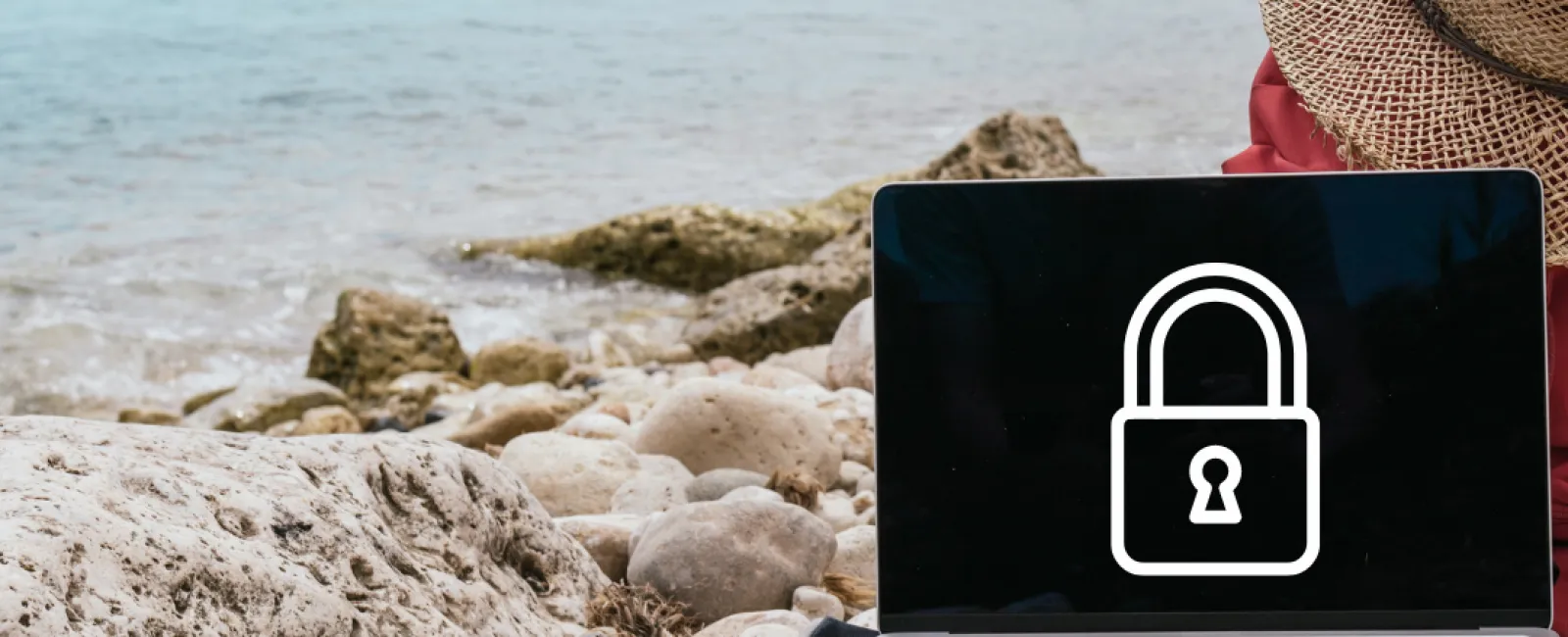Taking a Vacation? Don't Forget Your Cybersecurity Checklist
Summer is a prime time for business owners and employees to step away from the office and enjoy a much-needed vacation. However, even with an "out of office" auto-reply set up, many people still check in on work occasionally while traveling. Unfortunately, working outside the office—whether it's a quick email check on vacation, connecting to the Internet at a local coffee shop, or handling tasks while on a business trip—can lead to significant cybersecurity risks. If you or your employees plan to handle work tasks from places like airports or hotel lobbies, it's crucial to follow strong cybersecurity best practices to protect your company's network from nearby hackers.
In this blog post, we'll discuss essential cybersecurity best practices to follow before and during any trip to keep your network secure from cyber threats.
Why Cybersecurity Matters While Traveling
Cybersecurity might not be at the top of your vacation checklist, but neglecting it can turn your dream getaway into a nightmare. Cybercriminals know that summer is a prime time to strike because people are more likely to let their guard down while on vacation. During this time, the focus is on relaxation rather than adhering to cybersecurity protocols, making vacationers easy targets for hackers.
To minimize the risk of a cyberattack while traveling, here are some best practices to share with your team members who might connect to the Internet during their vacation.
Before You Go:
1. Back Up Your Data: Ensure you have a copy of your data that can be restored if your device gets lost or damaged.
2. Update Your Software: Make sure your operating system, web browsers, and apps are updated to the latest versions. Outdated software can make your device vulnerable to malware.
3. Protect Your Devices: Always lock your device using a PIN, passcode, fingerprint, or facial recognition. If you haven't set this up yet, do so before traveling. An unattended, unlocked device can give someone full access to your private information.
4. Enable "Find My Phone": This feature allows you to locate your device if it's lost and gives you the power to remotely wipe data or disable the device if it falls into the wrong hands.
While Traveling:
1. Use a Virtual Private Network (VPN): A VPN encrypts your Internet connection, ensuring your data remains secure even when using public WiFi networks. Set up a VPN on your devices before you leave and use it whenever you access the Internet.
2. Avoid Public WiFi: While public WiFi is convenient, it can be a hotspot for cybercriminal activity. Avoid using unprotected networks whenever possible. (Yes, that means no checking your email on the beach unless you have a VPN!)
3. Manage Location Services: Location tools are helpful for navigating new places but can also expose your location to criminals. Turn off location services when not in use, and consider limiting how you share your location on social media.
4. Enable Multifactor Authentication (MFA): MFA adds an extra layer of security to your accounts by requiring a second form of verification, such as a text message code, authenticator code, or fingerprint scan. Enable this feature for all accounts containing sensitive information before you leave.
5. Disable Auto-Connect Features: Some devices automatically seek and connect to available wireless networks. This can give cybercriminals access to your devices if you connect to the wrong network. Disable this option so you only connect to wireless and Bluetooth networks you know and trust.
By following these best practices, you can ensure that your vacation remains stress-free and that your company's network stays secure. Happy travels!
You deserve to unwind during your vacation. By following these straightforward precautions, you can safeguard your device and fully enjoy your time off without the concern of cyber issues awaiting you upon your return to work.
However, it's crucial to understand that these measures are not foolproof. To truly guarantee that your company's cybersecurity is up to par, it's essential to collaborate with a professional IT team. They can provide round-the-clock network monitoring, address any vulnerabilities that arise (which happens frequently), and notify you of any suspicious activities.
To help you prepare for your vacation and have peace of mind knowing your business is secure while you or your employees are working remotely, call us at 610-433-1000 or click here to schedule a FREE Consult with our cybersecurity experts today. We'll evaluate your current cybersecurity solutions, identify potential vulnerabilities and help you implement a strategic security plan to keep your company safe.




